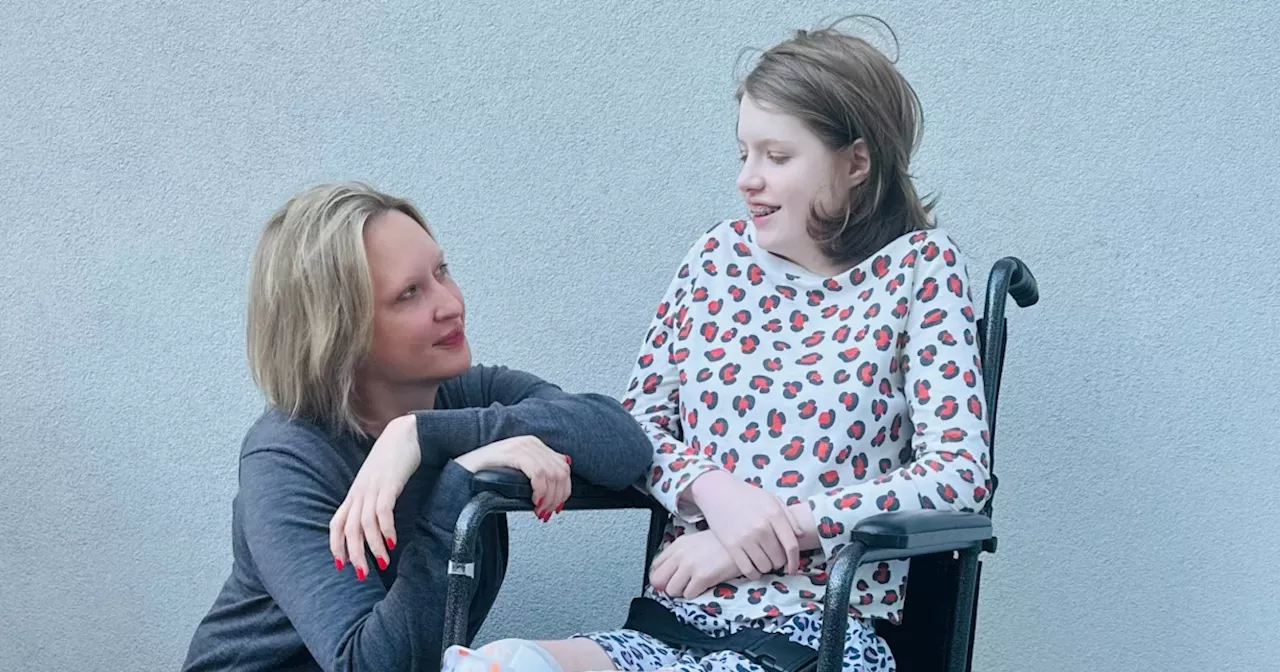This heartwarming story explores the importance of open communication and embracing differences through the lens of a mother's experience with her daughter Maggie, who uses a wheelchair. Witnessing Maggie's interactions with a classmate, the author reflects on the lessons learned from Maggie's journey overcoming speech difficulties. The narrative emphasizes the value of curiosity, asking questions, and fostering understanding in a world grappling with sensitivities and cancel culture.
My 12-year-old daughter, Maggie, uses a wheelchair. In 2021, when school went in person for the first time during COVID, Maggie met her class in an open park near our house. We all wore masks and stood several feet apart, relearning how to be social. One of Maggie’s classmates approached her and said, “Why do you use that thing?” She pointed at Maggie’s wheelchair. My daughter said, “It’s hard for me to walk, and my legs get tired kind of fast.
” Maggie pointed at her classmate’s hijab and asked her, “Why do you wear that scarf on your head?” The little girl explained that it was a symbol of her religion. The classmate’s mother seemed to wince a little when her daughter used the word “thing” to describe Maggie’s wheelchair, and I certainly resisted the urge to intervene when my kid stuck her finger in her new pal’s face to ask her about her hijab. Maggie and her classmate moved on to talking about their teacher and their favorite video games. I stepped a bit closer to the classmate’s mom. We both apologized at the same time, then laughed. “They don’t get offended like we do,” she said. “It’s like they really trust each other’s curiosity,” I heard myself say. “Asking questions is a good thing,” the mom said. I’d never thought about it in precisely these terms before this moment. Watching our daughters interact, I realized how much of my life beside Maggie pointed to these subtle but important truths. When Maggie was 3 years old, she talked constantly, but nobody could understand her. She would later be diagnosed with a newly discovered genetic condition that causes both physical disabilities and a speech disorder, which meant she could understand and use language, but her sounds didn’t match her words. Maggie was given a litany of early diagnoses. “Late talker” became “developmental delay” and then “articulation disorder.” By the time she started kindergarten, she’d been in speech therapy for four years. Maggie’s speech therapist helped us program a tablet to speak for Maggie when she pressed illustrated buttons to say words. Her first full sentence was, “I want more money!” After the device spoke for her, Maggie threw her head back and laughed, pointing at my purse. Her next sentence was, “Joke! I love Mommy … and birthday presents!” By the end of kindergarten, Maggie’s speech had transformed, and nearly everyone could understand her without her device. Her speech therapist used words like “unprecedented” to describe Maggie’s progress. Her teacher called it “miraculous.” They weren’t falling into the trope of praising Maggie as inspirational just because she was disabled. The speech therapist and teacher were acknowledging, as best they could, how hard Maggie worked on her speech and how exciting it was to be able to understand her sentences. The biggest reason Maggie’s speech improved was that every time Maggie pressed her tablet to talk, she repeated the words and sentences over and over verbally, training her own sounds. I caught her navigating away from the “talker” app in her tablet to record herself practicing words, her ABCs, and eventually, so, so many silly jokes. I never saw her frustrated while she practiced. In my view, Maggie practiced a lot because she thoroughly enjoyed connecting with people, and she worked super hard for every single word. I became a speech therapist myself after witnessing Maggie’s journey over the years, realizing that the capacity to communicate is one of the most thrilling parts of being human. For years, I worked in a middle school with kids with speech disorders like my daughter as well as kids with autism, stutters and language disorders. I’m also neurodivergent, and I began most speech groups with a conversation about problem solving and diversity. “Everyone in this room has a diagnosis,” I said. Then, we practiced talking explicitly about our speech and language diagnoses. I asked the group about the differences between a diagnosis and a label, and we expanded our conversation outward, practicing asking and answering questions about our identities, experiences, families and cultural backgrounds. In the last five years, the subject of being offended almost always popped up in these groups, like a microcosm of our society’s widespread conversations about trigger warnings and cancel culture. My colleagues and I discussed the nuances frequently: It’s hard enough to figure out how to talk to people we know well and love, as adults, when we have radically different ideologies or experiences. Imagine trying to guide kids — who are also navigating the drama of puberty — through the same divisive and vulnerable topics, especially when many of those kids have a specific disability in how they understand or express words. There’s no easy answer. I told my students that mistakes are opportunities to learn
Education Disability COMMUNICATION CURIOSITY DISABILITY EDUCATION FAMILY LANGUAGE DEVELOPMENT OPENNESS SOCIAL SKILLS SPEECH THERAPY UNDERSTANDING
United States Latest News, United States Headlines
Similar News:You can also read news stories similar to this one that we have collected from other news sources.
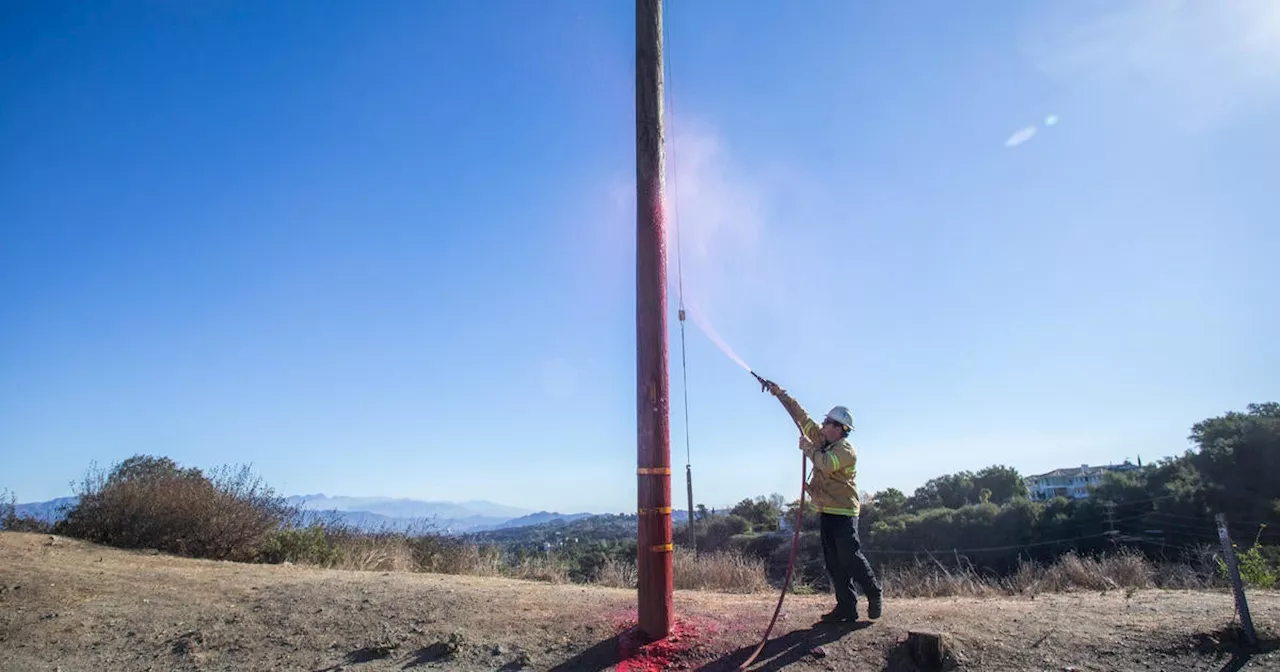 Power companies douse Los Angeles power poles with retardant to protect power grid during firesWith multiple wildfires still burning across the county, several Los Angeles power companies have started to try and get ahead of the potentially volatile and erratic flames, working to mitigate additional risks by clearing dry vegetation and protecting valuable power lines.
Power companies douse Los Angeles power poles with retardant to protect power grid during firesWith multiple wildfires still burning across the county, several Los Angeles power companies have started to try and get ahead of the potentially volatile and erratic flames, working to mitigate additional risks by clearing dry vegetation and protecting valuable power lines.
Read more »
 The Power of Curiosity: Unlocking Innovation and Thought LeadershipThis article explores the importance of curiosity in driving innovation and becoming a thought leader. It emphasizes the value of listening, learning, and seeking diverse perspectives.
The Power of Curiosity: Unlocking Innovation and Thought LeadershipThis article explores the importance of curiosity in driving innovation and becoming a thought leader. It emphasizes the value of listening, learning, and seeking diverse perspectives.
Read more »
 Power Stocks Power Up on AI Boom: Expect More Growth in 2025Constellation Energy, Vistra Corp., and Talen Energy are predicted to see continued growth in 2025 due to the increasing demand for electricity from artificial intelligence.
Power Stocks Power Up on AI Boom: Expect More Growth in 2025Constellation Energy, Vistra Corp., and Talen Energy are predicted to see continued growth in 2025 due to the increasing demand for electricity from artificial intelligence.
Read more »
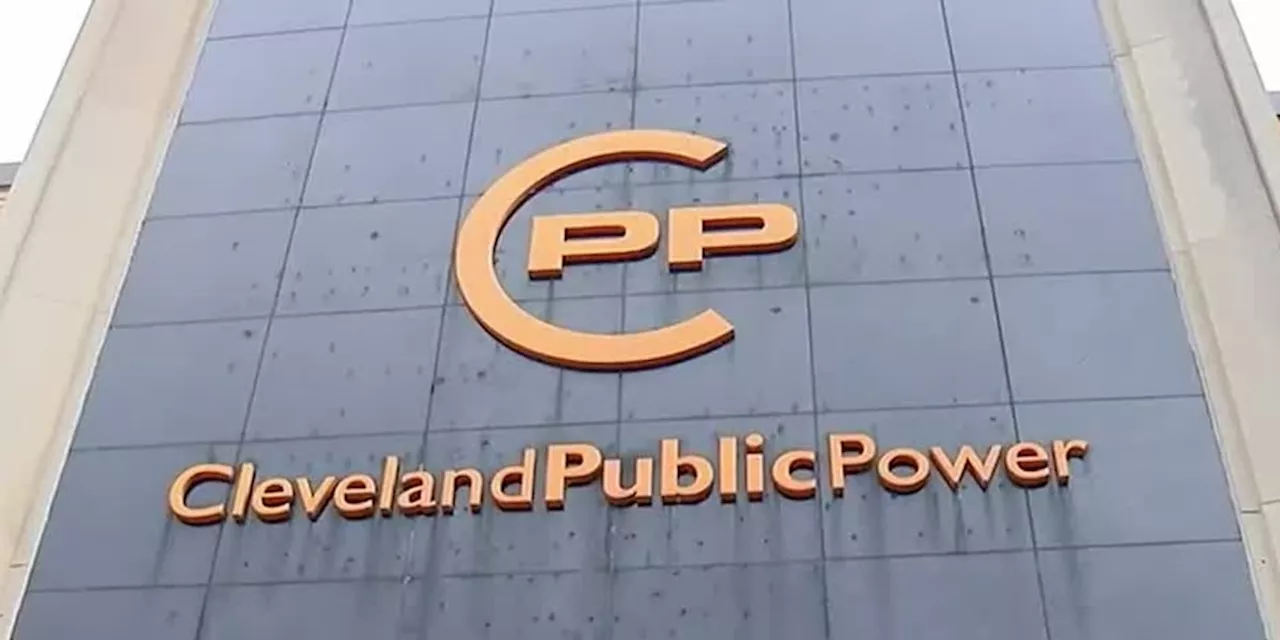 Large power outage impacting Cleveland Public Power customers on city’s East SideCleveland Public Power is working on a large power outage affecting the city’s East Side Monday.
Large power outage impacting Cleveland Public Power customers on city’s East SideCleveland Public Power is working on a large power outage affecting the city’s East Side Monday.
Read more »
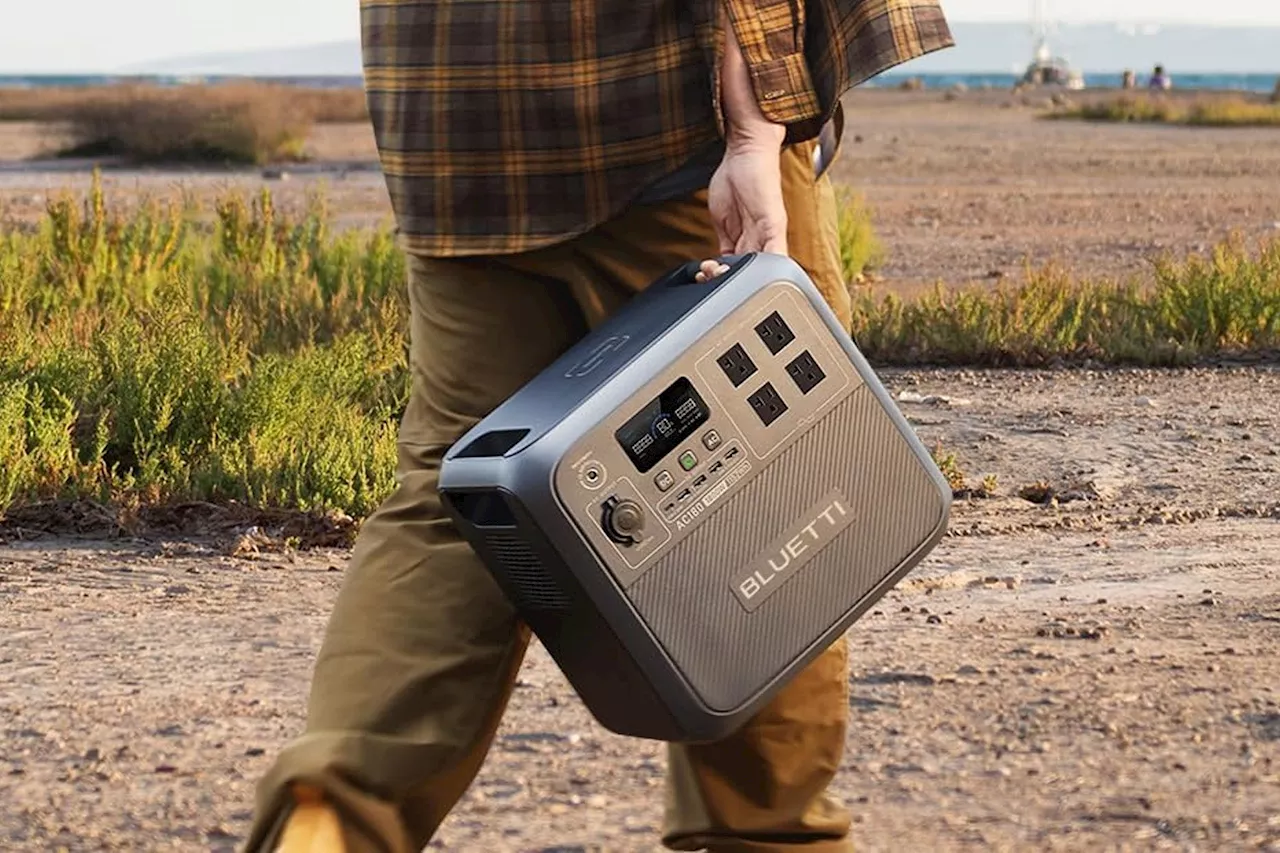 Bluetti AC180 Portable Power Station on Sale: Power Through Any SituationPrepare for anything with the Bluetti AC180 portable power station, now on sale at Amazon for 54% off. This 1,152Wh power station features 11 outlets, including AC, car, USB-C, and USB-A ports. Recharge via AC in one hour or solar panel for off-grid use. With a powerlifting mode providing up to 2,700W, it can handle power-hungry devices. The AC180 boasts a 3,500+ cycle lifespan and seamless power switching for emergencies.
Bluetti AC180 Portable Power Station on Sale: Power Through Any SituationPrepare for anything with the Bluetti AC180 portable power station, now on sale at Amazon for 54% off. This 1,152Wh power station features 11 outlets, including AC, car, USB-C, and USB-A ports. Recharge via AC in one hour or solar panel for off-grid use. With a powerlifting mode providing up to 2,700W, it can handle power-hungry devices. The AC180 boasts a 3,500+ cycle lifespan and seamless power switching for emergencies.
Read more »
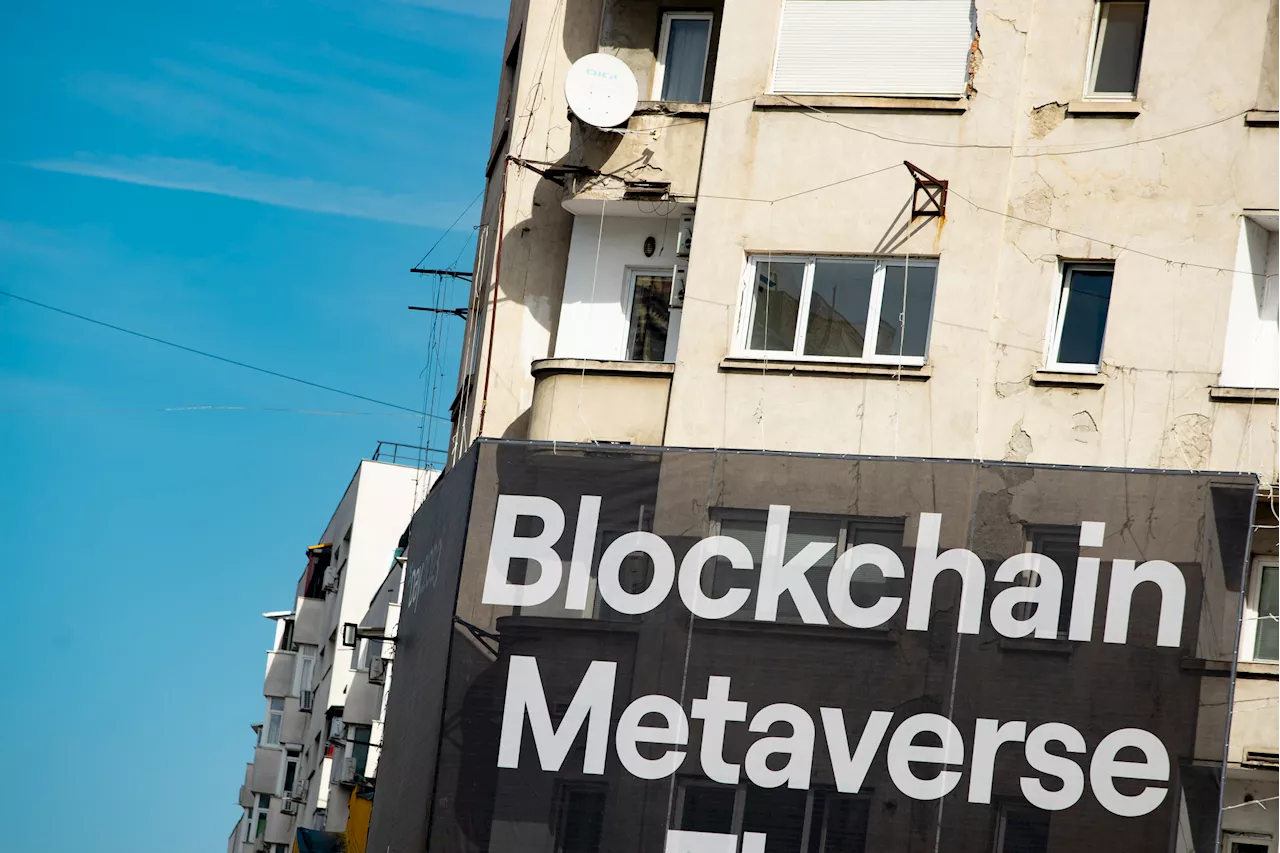 From Harry Potter to Blockchain: A Journey of Curiosity and InnovationThis is a story about an individual's journey from an early fascination with Western books and culture to a career in computer science and blockchain technology. It highlights the power of curiosity, the importance of education, and the impact of global influences on personal development.
From Harry Potter to Blockchain: A Journey of Curiosity and InnovationThis is a story about an individual's journey from an early fascination with Western books and culture to a career in computer science and blockchain technology. It highlights the power of curiosity, the importance of education, and the impact of global influences on personal development.
Read more »
